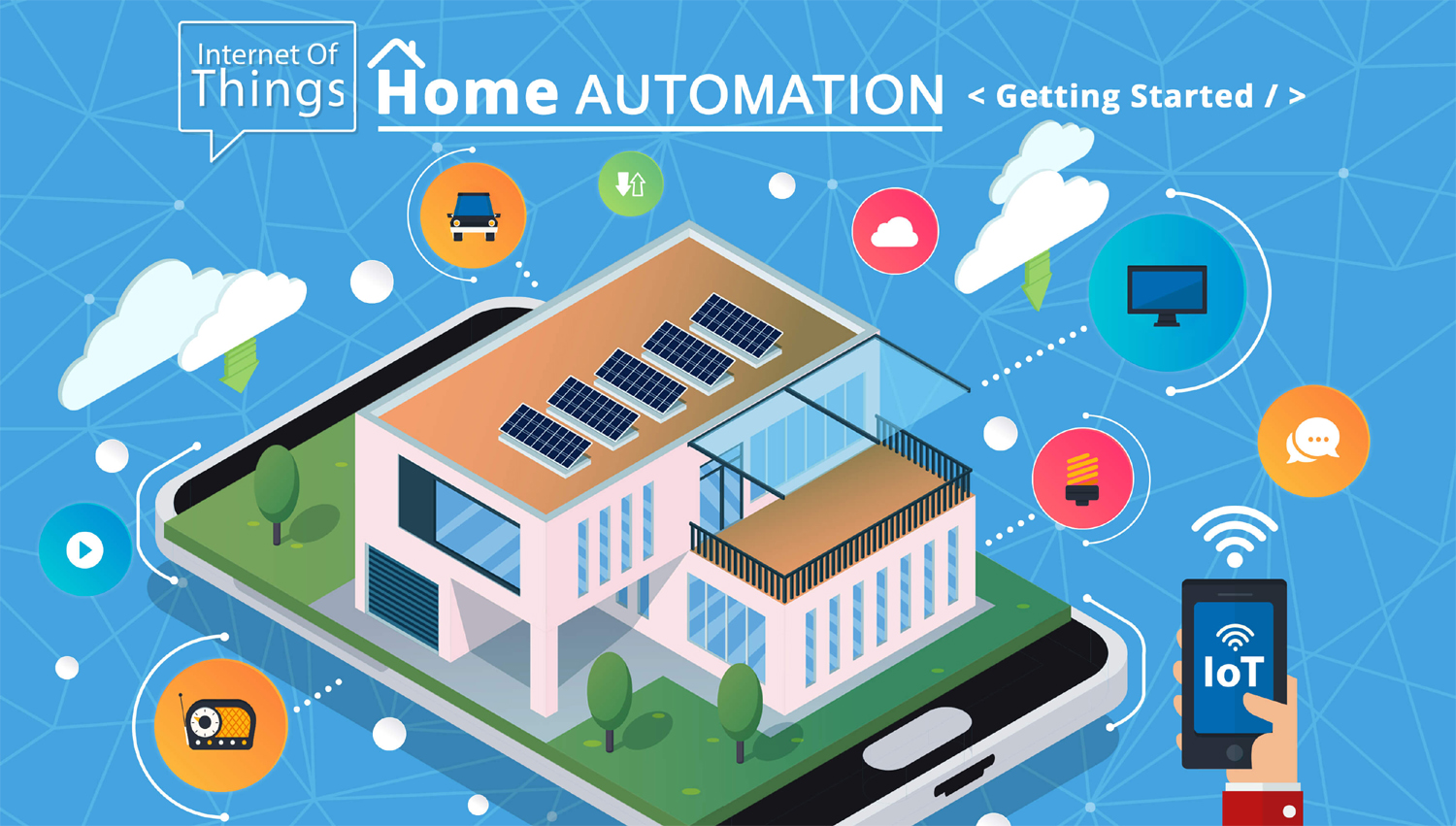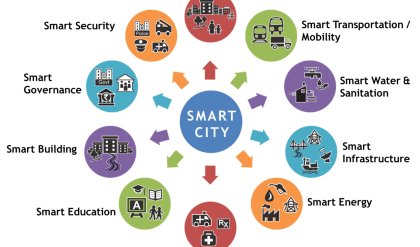
Beyond Convenience: How Smart Services Improve Your Well-being
We live in a world increasingly interwoven with technology. While the term “smart services” often conjures images of sleek interfaces and automated tasks, their impact extends far beyond mere convenience. They are quietly revolutionizing how we approach our well-being, offering subtle yet powerful shifts in how we manage our time, health, and mental peace. This isn’t just about efficiency; it’s about empowerment.
The Silent Symphony of Smart Support:
Imagine a day orchestrated by smart services. Your smart home adjusts the lighting and temperature based on your circadian rhythm, gently guiding you through a wake-up routine optimized for your sleep cycle. Your smart calendar proactively schedules appointments, minimizing scheduling conflicts and reducing stress. A fitness tracker monitors your activity levels, providing gentle nudges to encourage movement and mindfulness. This seamless integration of technology into daily life isn’t about controlling you; it’s about supporting you in living a healthier, more balanced life.
Beyond the Buzzwords: Tangible Impacts on Well-being:
The benefits of smart services extend across various facets of well-being:
1. Stress Reduction & Time Management:
Smart services significantly reduce cognitive overload. By automating repetitive tasks, managing schedules, and providing timely reminders, they free up mental bandwidth for more important things – creativity, connection, and relaxation.
| Area | Impact |
|---|---|
| Calendar Management | Reduced scheduling conflicts, less stress |
| Task Automation | Frees up mental space, boosts productivity |
| Smart Home Devices | Creates a calming and efficient environment |
2. Enhanced Physical Health:
Smart wearables and health apps go beyond simply counting steps. They provide personalized insights into your fitness levels, sleep patterns, and even dietary habits, enabling proactive health management. Smart medication reminders ensure adherence to treatment plans, while virtual consultations with doctors enhance accessibility to healthcare.
| Area | Impact |
|---|---|
| Fitness Tracking | Personalized workout plans, motivation |
| Sleep Monitoring | Improved sleep hygiene |
| Medication Reminders | Increased adherence to treatment |
3. Improved Mental Well-being:
The constant connectivity enabled by smart services can ironically contribute to mental well-being. While mindful usage is crucial, these tools can facilitate connection with loved ones, access to mental health resources, and participation in online support groups. Meditation apps provide guided sessions, promoting mindfulness and stress reduction.
| Area | Impact |
|---|---|
| Meditation Apps | Stress reduction, mindfulness |
| Online Support Groups | Fosters a sense of community |
| Virtual Therapy Sessions | Increased accessibility to mental health |
4. Fostering a Sense of Control & Empowerment:
Smart services empower individuals to take charge of their lives. By providing personalized data and insights, they help us understand our patterns, habits, and needs, leading to informed decision-making about our health and lifestyle. This feeling of agency is vital for well-being.
Navigating the Digital Landscape Responsibly:
While the benefits are undeniable, it’s crucial to use smart services responsibly. Over-reliance can lead to technology addiction and decreased face-to-face interaction. Mindful usage, establishing healthy boundaries, and prioritizing real-world connections are essential for reaping the benefits without compromising well-being.
The Future of Well-being: A Symbiotic Relationship:
The integration of smart services into our lives is ongoing. As technology evolves, we can anticipate even more sophisticated tools designed to support our well-being. The key is to view these advancements not as replacements for human connection or self-care but as powerful allies in our journey towards a healthier, happier, and more fulfilling life. The future of well-being isn’t solely about technology; it’s about harnessing technology’s potential to enhance our inherent capacity for flourishing.

Additional Information
Beyond Convenience: A Deeper Dive into the Well-being Impact of Smart Services
The assertion that smart services improve well-being goes beyond simple convenience; it touches upon fundamental shifts in how we manage our lives and interact with our environment. While the ease and efficiency offered are undeniable benefits, a deeper analysis reveals a more nuanced impact on various aspects of well-being, encompassing physical, mental, and social dimensions.
1. Enhanced Physical Well-being:
Smart services contribute to improved physical health in several ways:
- Proactive Health Monitoring: Wearable technology integrated with health apps provides continuous data on vital signs, sleep patterns, and activity levels. This allows for early detection of potential health issues, personalized fitness plans tailored to individual needs, and timely interventions, minimizing the risk of chronic diseases. For instance, studies have shown that smartwatches coupled with proactive healthcare interventions can lead to significant reductions in blood pressure and cholesterol levels in high-risk individuals. The effectiveness, however, is heavily reliant on user engagement and the quality of the algorithms interpreting the data.
- Medication Management: Smart pill dispensers and reminder apps assist in medication adherence, particularly crucial for individuals with chronic conditions. Improved adherence directly translates to better health outcomes and reduces hospital readmissions. A meta-analysis of studies on smart pill dispensers revealed a significant improvement in medication adherence rates compared to traditional methods.
- Accessibility to Healthcare: Telemedicine platforms leverage smart technologies to provide remote consultations, reducing geographical barriers to healthcare access, especially beneficial for individuals in rural areas or with mobility limitations. The COVID-19 pandemic significantly accelerated the adoption of telemedicine, demonstrating its potential to improve healthcare equity. However, challenges remain regarding data security, regulatory frameworks, and the digital divide.
2. Improved Mental Well-being:
The impact of smart services on mental well-being is equally profound:
- Stress Reduction and Mindfulness: Mindfulness apps and smart devices incorporating biofeedback mechanisms help users manage stress levels and cultivate mindfulness practices. While the efficacy varies depending on individual commitment and app design, studies suggest a positive correlation between consistent use of such apps and reduced anxiety and improved mood.
- Mental Health Support: Mental health apps offer resources such as cognitive behavioral therapy (CBT) modules, self-help tools, and access to therapists, increasing accessibility to mental health care. However, the quality and effectiveness of these apps vary widely, and ethical considerations around data privacy and the potential for misdiagnosis need careful attention.
- Social Connection: Smart services facilitate social interaction through video calls, social media platforms, and online communities, combating loneliness and isolation, particularly amongst elderly individuals or those with social anxiety. While maintaining a balance is crucial, responsible use can enhance social support networks.
3. Augmented Social Well-being:
Smart services contribute to improved social well-being beyond simply enhanced communication:
- Efficient Task Management: Smart home devices and scheduling apps streamline household tasks, freeing up time for social activities and fostering a better work-life balance. This reduction in stress related to household chores can positively impact family relationships and social interactions.
- Community Building: Location-based services and social networking apps facilitate community building and participation in local events, fostering a sense of belonging and social connection. However, the potential for echo chambers and online polarization must be acknowledged and addressed.
4. Challenges and Considerations:
Despite the numerous benefits, several challenges need to be addressed:
- Data Privacy and Security: The collection and use of personal data by smart services raise significant privacy concerns. Robust data protection measures and transparent data handling practices are essential to build trust and ensure responsible innovation.
- Digital Divide: Unequal access to technology and digital literacy limits the benefits of smart services for certain population segments. Bridging the digital divide is crucial to ensure equitable access to these technologies.
- Over-reliance and Dependence: Overdependence on smart services can lead to decreased self-reliance and a diminished ability to manage tasks independently. Promoting a balanced approach is crucial.
Conclusion:
Smart services offer significant potential to enhance well-being across various dimensions. However, a critical analysis reveals both opportunities and challenges. Addressing concerns related to data privacy, digital equity, and responsible technology design is crucial to harness the full potential of smart services for a healthier and happier society. Future research should focus on long-term impact studies, developing robust ethical guidelines, and ensuring equitable access to these transformative technologies.





